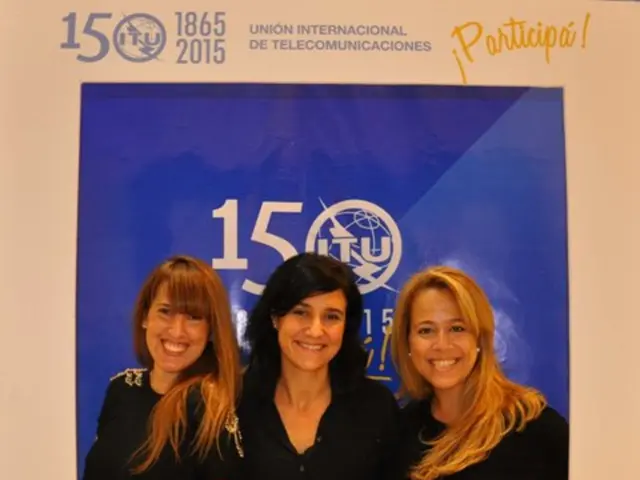Cognitive Optimization through Nootropics: Achieving Ideal Concentration and Creativity Balance
Brain health is an increasingly pertinent matter, given the central role our brains play in directing our bodies. In today's fast-paced world, finding the delicate balance between creativity and focus can feel like navigating a tightrope. Many are exploring nootropics, substances claimed to boost cognitive performance, as a potential solution. But how do creativity, focus, and nootropics work together to strike that cognitive equilibrium?
Exploring Creativity and Focus
First, let's delve into the essence of creativity and focus, two vital components for brain health and peak performance. Although these may seem contradictory, both are integral:
- The Nature of Creativity: Often envisioned as the birthplace of innovative ideas, creativity allows artists, writers, and inventors to produce masterpieces, novels, and groundbreaking solutions. It stems from our capacity to imagine and think beyond conventional boundaries.
- The Power of Focus: Focus enables us to concentrate our attention on a specific task, shutting out distractions. It is essential for productivity and efficient task completion. When focused, our mental energies are directed effectively, enhancing overall performance.
Seeking a Balance
Striking a balance between creativity and focus is key to harnessing the best of both:
- Dedicated Creativity Sessions: Allocate specific time slots during your day for creative activities. Use these periods to let your mind wander freely without constraints.
- Focused Work Periods: Utilize strategies like the Pomodoro Technique, concentrating on a task for 25 minutes, followed by a 5-minute break. This method maintains focus while preventing burnout.
- Mindfulness and Meditation: Practices such as meditation help bridge the gap between creativity and focus. They promote relaxation, increasing awareness and facilitating seamless task transitions.
The Interplay of Nootropics
To better understand how nootropics can aid creativity and focus, let's first comprehend these functions:
- Types of Nootropics: These substances, employed by some to potentially improve cognitive function, can be divided into various categories:
- Caffeine: A widely-used nootropic, known for its ability to enhance alertness and focus. Found in coffee and tea, it aids in tackling attention-demanding tasks.
- L-Theanine: Frequently combined with caffeine, it induces relaxation without drowsiness, offsetting the stimulating effects of caffeine.
- Ginkgo Biloba: An herbal supplement thought to boost memory and cognitive speed.
- Omega-3 Fatty Acids: Essential for brain health, they contribute to overall cognitive function and may improve mood.
Before adopting nootropics, perform thorough research and consult with a healthcare professional. Effects can vary among individuals.
- Boosting Creativity and Focus: Nootropics may offer advantages in achieving the elusive balance between creativity and focus:
- Optimizing Brain Function: By bolstering different aspects of brain health, nootropics can improve cognitive functions, such as memory, concentration, and problem-solving skills.
- Lessening Mental Fatigue and Anxiety: Some nootropics can help reduce mental exhaustion and anxieties, obstacles that can impede both creativity and focus, leaving you more cognitively equipped for creative tasks or focus-intensive projects.
- Mood Enhancement: Positive emotions are critical for creativity and focus. Nootropics that support mood enhancement can indirectly contribute to better brain function.
Defining Your Personal Cognitive Plan
Having analyzed the intricate relationship between creativity, focus, and nootropics, consider implementing these strategies in your life:
- Self-Evaluation: Assess your current cognitive strengths and weaknesses. Are you more creative or focused? Identify areas for enhancement.
- Research Nootropics: Educate yourself on the diverse nootropics available and how they could support your goals.
- Experimentation: Begin conservatively and test different nootropics to find what works best for you. Consult with a healthcare professional throughout this process.
- Routine Balance: Adopt daily practices conducive to both creativity and focus, like regular exercise and good sleep habits, and utilize nootropics as an adjunct strategy.
- Progress Tracking: Keep a journal to document the impact of various strategies and nootropics on your creativity and focus. Adjust your approach as needed to achieve that golden balance.
Continued Learning and Adaptation
Cultivating cognitive balance is an evolving process, often requiring adaptations as new insights and discoveries emerge. Stay informed about the latest advancements in brain health, creativity, and focus enhancers. By staying current, you ensure that your strategies remain rooted in evidence-based practices.
Keep in mind that optimizing your cognitive abilities integrates lifestyle habits, mindfulness, and the judicious use of supplements, such as nootropics. With a thoughtful, introspective approach, you can cultivate the ideal equilibrium of creativity and focus, leading to a more vibrant, fulfilling life.
In the pursuit of brain health and peak performance, understanding the balance between creativity and focus is essential. Creativity, the source of innovative ideas, is crucial for artists, writers, and inventors, enabling them to produce masterpieces and groundbreaking solutions. On the other hand, focus allows for a concentrated attention on specific tasks, shutting out distractions, which is key for productivity and efficient task completion.
Achieving this balance can be facilitated by dedicating specific time slots for creative activities, using periods to let the mind wander freely. Conversely, utilizing strategies like the Pomodoro Technique, focusing on a task for 25 minutes followed by a 5-minute break, can maintain focus while preventing burnout.
Mindfulness and meditation practices promote relaxation, increasing awareness and facilitating seamless task transitions, thereby bridging the gap between creativity and focus.
To enhance creativity and focus further, nootropics – substances claimed to boost cognitive performance – can be explored. Common nootropics include caffeine, L-Theanine, Ginkgo Biloba, and Omega-3 Fatty Acids, each working differently to improve memory, concentration, problem-solving skills, and reduce mental exhaustion and anxieties. However, before adopting nootropics, it's crucial to perform thorough research and consult with a healthcare professional.
By bolstering different aspects of brain health, nootropics can help attain the elusive balance between creativity and focus. They can also help reduce mental fatigue and anxieties, obstacles that can impede both creativity and focus. Positive emotions are critical for creativity and focus, and nootropics that support mood enhancement can indirectly contribute to better brain function.
Assessing current cognitive strengths and weaknesses, educating oneself on available nootropics, experimentation, adopting daily practices for both creativity and focus (such as regular exercise and good sleep habits), and tracking progress are key strategies for implementing a personal cognitive plan.
The relationship between creativity, focus, and nootropics is complex and requires continuous learning and adaptation. Staying informed about the latest advancements in brain health, creativity, and focus enhancers ensures that strategies remain rooted in evidence-based practices. Ultimately, optimizing cognitive abilities involves integrating lifestyle habits, mindfulness, and the judicious use of supplements like nootropics, with a thoughtful, introspective approach to cultivate the ideal equilibrium of creativity and focus, leading to a more vibrant, fulfilling life. This approach aligns with broader health-and-wellness, fitness-and-exercise, mental-health, education-and-self-development, and personal-growth endeavors, including online-education and lifelong-learning.








